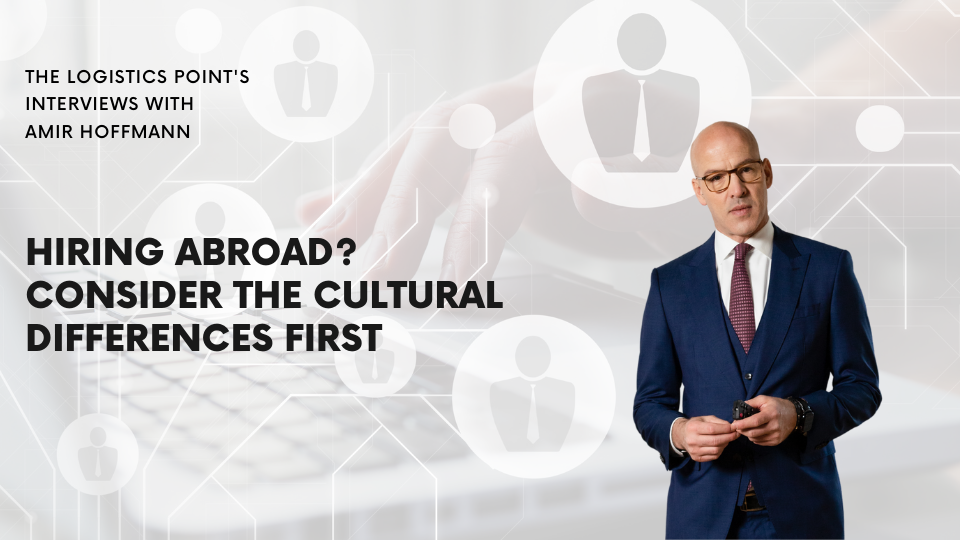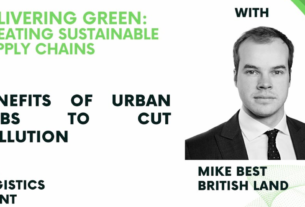Entering a new market is a challenge that many companies often face if they haven’t carefully planned the path forward. There are a multitude of problems that need to be addressed as managers are not always aware of the cultural differences and the business specifics of the market they are tapping into. Finding the right people is key to success but here come the challenges! What are the most important aspects we should consider when locating the most suitable candidates for a vacancy and above all – how do we engage with them in a way they are willing to relate with?

We spoke to Amir Hoffmann, Managing Director at HCS – Sales Recruitment Worldwide, about the challenges of finding the right salespeople in a new market, the importance of cultural differences, and the image of your brand.
What are the challenges companies face when looking for employees in markets they do not know?
When a company needs to approach a new market, most of the challenges come from the fact that the majority of the candidates, especially the top performers, are conservative. So, when you come in as a foreign organisation, those that are not familiar with you will be hesitant to either apply or engage in the recruitment process. They do not know the company and they do not know their focus in that region. Even if it is a large brand, such as a large logistics company entering a certain region with a known name, how does the candidate actually know that they are focusing on that area, and how do they learn about the organisation and its plans?
There are so many elements that we, as the partner connecting companies to the candidates, can bring to both sides. We invest time learning about the organisation we represent because then we become exceptional ambassadors towards potential candidates, addressing all possible barriers in our approach to them. We explain about the company, its strategic plans, the unit, its focus, future road-map, and all those elements give them much confidence to say ‘’sounds like a company I’d like to explore’’.

The things that you need to emphasise in order to make progress in Asia (and there are many different cultures within Asia itself) are not the same as in Europe, Latin America, the Middle East, etc.
This cannot be addressed by just putting a job ad on LinkedIn and stating ‘’Looking for a Sales Director in Japan’’. If the candidates do not receive the full message and understand that the company will be attentive to them, the response rate will be problematic. Most candidates will not go ahead and even the ones who do, will not continue the journey towards getting an actual placement secured at the end.
Have you had to deal with situations in which a company has published something on LinkedIn, it goes terribly wrong and then you have to rebrand or redo the whole image?
Very much so, but it is never intentional. The main reason it happens so often is that most of the recruiters are still facing a scenario where differentiation between regions is not too much in focus. This means that the same way they have approached a few candidates this morning in Germany is repeated in the afternoon for a country/culture/region which is completely different. You cannot approach different cultures in the same way, you cannot say the same things, there needs to be differentiation.
The things that you need to emphasise in order to make progress in Asia (and there are many different cultures within Asia itself) are not the same as in Europe, Latin America, the Middle East, etc. If you do not take the cultural element into consideration, you get no momentum, and even worse, you lose valuable momentum and perhaps suitable strong-fit candidates, even to the extent that some of the candidates are just not going to apply due to the lack of sensitivity when approaching them. You cannot just copy-paste a job description and multiply the number of countries you want to look for people in without addressing the cultural element.
And on the other side as well, how do you present the cultural element or the specific company to a candidate?
We take a lot of time to learn and investigate our customers before even approaching a candidate. And when I say a lot of time, I do not just mean learning what the company does, its portfolio, and the Google results that come up. We spend time understanding who the Line Managers are, which cultures they are from, the team for this role, their background, the competition, and what cultures they have hired. We also look at the retention rate: whether most of the employees in this area have just recently been hired or have been there for many years. You can learn about the maturity of an organisation, a region, or culture by diving deep into every company, and we do not only spend time on that, but we also prepare a list of questions/items, which the team must learn and understand before they approach candidates.
Is it hard for companies to understand their own culture presented in this way?
I don’t think it’s hard, but I think that they are surprised. I think that by using an agency, the assumption from that organisation is that things are super basic… there is a role, the company needs people, and the agency finds these people. That is the general idea of engaging an external agency: it is being paid to go into a database or to map and find the best candidate in a certain region. Clients are not accustomed to receiving so many questions back. We are challenging our customers quite a lot, but it also works to their benefit, because from the moment we know that information, we are stronger not just for that assignment but also for future assignments that they can give us in other regions. At times, we even go to the extent of asking the line manager to prepare a slide deck for us, describing the unit, the role, the culture, and more.
Is there also a right size company?
If you are extremely small the perception is that you are agile enough to approach candidates yourself. I do not think you need an agency to be completely involved in the end-to-end recruitment process. However, you can definitely use a consultancy like ours for tips, advice, approaches, best practices, skilled long-listing, and so on. Size is of course a relative term for various organisations, but if a company is extremely small, it can benefit from our organisation to a smaller extent. If it’s extremely big, it will also benefit less, because large enterprises usually have a wide range of in-house services within their own Talent Team. We do have a few small and very large customers on board as well, but they make the exception, not the majority of our day-to-day focus.
And finally, I want to pick on the word ‘’cross-border’’, because we were talking about Asia, Europe, and America. How do we define the border, and where does the border start and end?
A company within the UK, entering a market for the first time that is completely different for them, like Germany in that aspect if it is within Europe or Asia, that to me is cross-border. Cross-border in our definition is when you are crossing the borders away from your comfort zone to a different area that you are less familiar with. It does not necessarily need to be a different continent, it has to be something that is new to the company from what its DNA has been founded on, to the point that they have started using an agency. We rarely support customers at their HQ and/or large presence locations.
Imagine I represent a company from Germany, and I would like to hire in France, which is on the other side of the border, and some of my recruiters speak French. How different could it be?
Unfortunately, you learn that by trial and error. Somebody within that German company has tried to approach the French market from all kinds of different angles and he got either zero traction or no tangible traction for progress. So, you know that you need support only after you tried to do it yourself, and you found out that you cannot. Our team is there to support and obtain results, not point out what our customers have done wrong thus far.
And then you have two kinds of companies: you either approach a recruitment firm from France that offers French personnel and is familiar with the culture or, as we are facing these days – you find a company that is focusing mostly on the cross-cultural element and try to see if they can help you in multiple areas. Partners who can help you in France might be able to help you in the Benelux region altogether, as there are French-speaking people there, so why use only a company that is French? When you focus on those cross-cultural elements, companies that have this built-in as one of their foundations, like HCS, could be a very good solution. We are proud to say that we have some customers that use us in 11+ regions in parallel, and the majority of them use us for at least 5+ locations worldwide.


